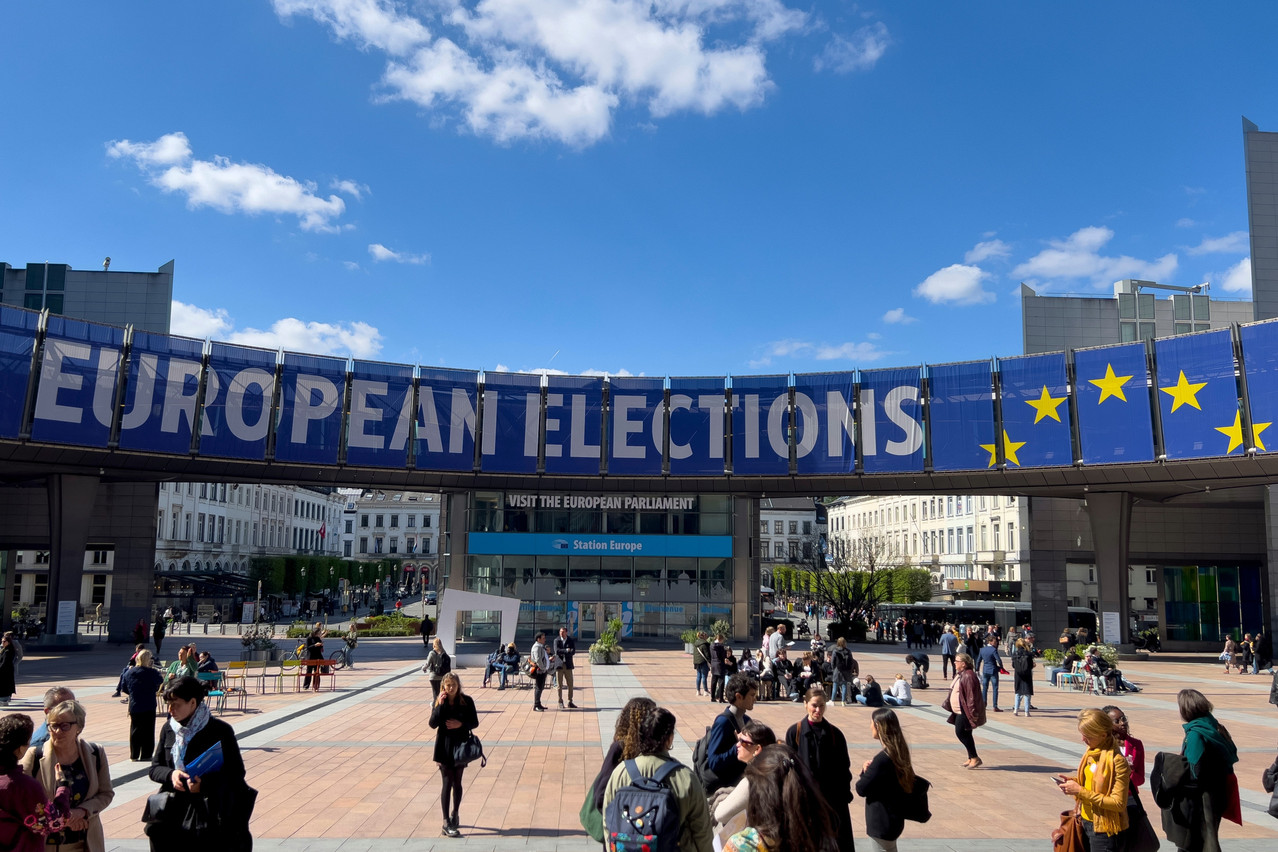Local or European election? From the outset, the election of MEPs has been a hybrid exercise. Voters have to choose the MEPs who will represent them in the European Parliament and who will have to debate issues that--while having a real impact on the lives of European citizens--remain difficult to understand if we apply national interpretations of political life. The dual majority/opposition system is not the cornerstone of the European Parliament’s operation. Admittedly, majority voting does exist and is manifested in the formation of a coalition supporting the European Commission, but the logic that prevails in parliamentary work and in the passing of legislation is that of the search for compromise. For it is not only political visions that clash, but also the interests of the 27 countries represented in the chamber.
A consensus on Europe in Luxembourg
The political themes that will dominate the campaign across the continent are geopolitical and existential for the EU, such as defence and energy independence. These are issues that resonate with voters. According to the latest results of the Eurobarometer survey, 84% of voters believe that the international context makes voting even more important. In Luxembourg, there is a consensus on Europe: 89% of people in Luxembourg say they see the impact of the EU’s actions in their daily lives, and 88% believe that the country benefits from its membership of the EU. Voters’ priorities? Again according to Eurobarometer, they put the fight against poverty and social exclusion at the top of the list (41%), ahead of the future of Europe (32%) and defence and security (31%). These are themes that the parties in the running will develop according to their own sensibilities.
13 parties in the running
In Luxembourg, 13 lists are in the running--three more than in 2019--representing 78 candidates for six seats to be filled. In addition to the seven political groupings represented in the chamber (CSV, DP, LSAP, ADR, déi Gréng, Piraten and déi Lénk), there are Fokus, the KPL, Volt, déi Konservativ, Oppositiounsbeweegung Mir d’Vollek and Zesummen – d’Bréck.
Following the elections in June 2019, the DP and the CSV each took two seats: and for the Christian Social Party, and and for the DP. Déi Gréng retained its mandate with and was elected for the LSAP, though his time in the European Parliament was very brief, as he joined Ursula von der Leyen’s European Commission in the autumn. inherited Schmit’s seat. Similarly, Christophe Hansen handed over his seat to Martine Kemp following his election to the chamber of deputies in October 2023.
With the exception of Schmit, who is aiming for the seat of European Commission president and has chosen to skip the 9 June deadline, all are standing again.
This time Monica Semedo will be running in the colours of Fokus, however, where she is co-head of the list with , himself a former MEP from 2009 to 2019. With two former MEPs heading the list, Fokus is playing the experience card to win a seat. Frank Engel acknowledges that this will be all the more difficult to achieve given that the number of candidates has reached a new record this year, encouraging a certain scattering of votes.
Since June last year and the municipal elections, the DP and the CSV have been on a roll. The DP was the big winner in the municipal elections: as well as retaining the capital, they smoothed out their presence at the national level, while on the ground we have seen the creation of bridges between their electorate and that of the CSV. The DP also did very well in the legislative elections, winning two seats. The Bettel effect was stronger than the wear and tear of power. Although with 14 MPs the DP could not claim the leadership of the government, it remained in power with a new partner, the CSV.
According to political scientist , the victory of the CSV and the DP reflects a shift in the electorate towards more materialistic views. While the environment and the climate agenda had been the major mobilising themes in previous legislative elections, in 2023 it was housing, purchasing power, inflation and taxation that were the issues. And these are the issues that have dominated the political agenda ever since. These are issues on which the government has so far made no missteps: the two partners in the government coalition should therefore, logically speaking, retain their seats in the European Parliament. However, it will be interesting to see how the balance of power between the two parties develops.
On the opposition side, LSAP, with 18.92% of the vote last October, is unlikely to lose its MEP. However, Déi Gréng’s seat is under threat. After the setbacks of the municipal and legislative elections--in which the party lost five MEPs and its presence in parliament--the European election could mark the end of a glorious chapter for the Greens. According to political scientist Anna-Lena Högenauer, the Greens are disillusioned by the electorate’s shift towards more material issues and right-wing themes, and see a return to a marked divide between left and right.
If this negative spiral is confirmed at the ballot box, it could benefit the LSAP. It could also benefit the ADR, which is building on its success in the legislative elections, where it won a seat in the chamber. However, according to Poirier, the latest legislative elections do not reflect a shift to the right in Luxembourg society, and euroscepticism is not as decisive an argument for the electorate in Luxembourg as it might be in France or Italy. With its score of 9.27% in the legislative elections, the party is close to the fateful threshold for obtaining an elected member. According to many candidates, this threshold lies between 11% and 13% of the vote.
This article in Paperjam. It has been translated and edited for Delano.
